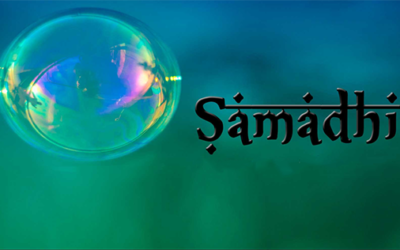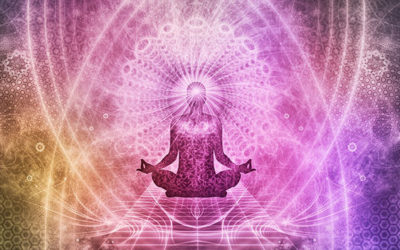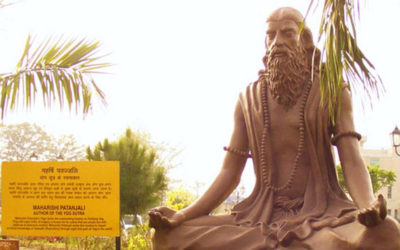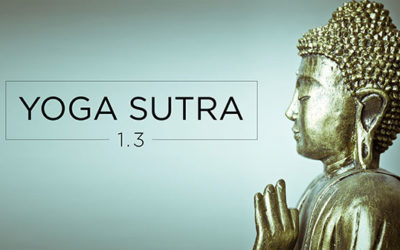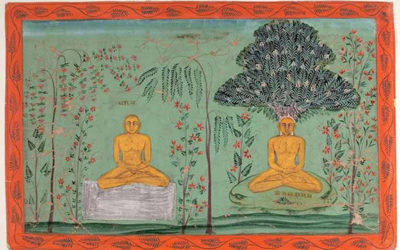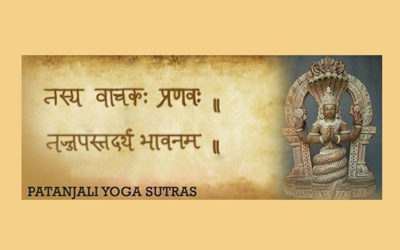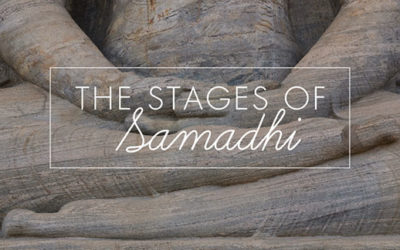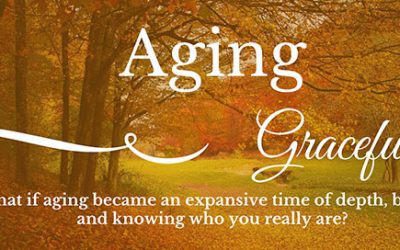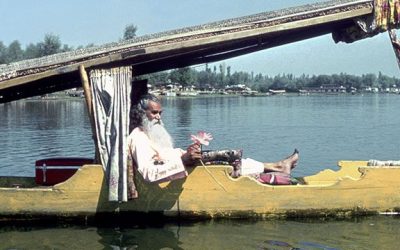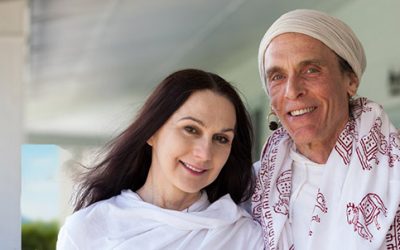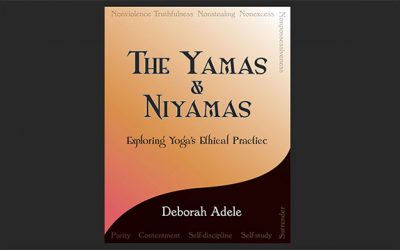Rev. Jaganath, Integral Yoga Minister and Raja Yoga master teacher, has spent a lifetime delving into the deepest layers of meaning in Patanjali’s words within the Yoga Sutras. Our series continues with the 18th and 19th sutras of Chapter 1 in which Patanjali now...
Patanjali’s Words: Intuitive Insight
Rev. Jaganath, Integral Yoga Minister and Raja Yoga master teacher, has spent a lifetime delving into the deepest layers of meaning in Patanjali’s words within the Yoga Sutras. Our series continues with the 17th sutra of Chapter 1. Rev. Jaganath explains that this is...
The Yamas and Niyamas: Aparigraha (Non-Greed)
If you’ve ever taken a class with Swami Karunananda, you know that she is a Raja Yoga master teacher and a fantastic storyteller. That’s why we couldn’t miss the opportunity to share the transcript of her talk on one of the five yamas: aparigrapha (non-greed). Swami...
Patanjali’s Words: Purusha—the True Self
Rev. Jaganath, Integral Yoga Minister and Raja Yoga master teacher, has spent a lifetime delving into the deepest layers of meaning in Patanjali’s words within the Yoga Sutras. Our series continues with the 16th sutra of Chapter 1 in which Patanjali describes what he...
Patanjali’s Words: Practice—The Path to Self-Mastery
Rev. Jaganath, Integral Yoga Minister and Raja Yoga master teacher, has spent a lifetime delving into the deepest layers of meaning in Patanjali’s words within the Yoga Sutras. Our series continues with the 14th and 15th sutras of Chapter 1 in which Patanjali further...
Patanjali’s Words: The Nature of Yoga Practice
Rev. Jaganath, Integral Yoga Minister and Raja Yoga master teacher, has spent a lifetime delving into the deepest layers of meaning in Patanjali’s words within the Yoga Sutras. Our series continues with the 12th and 13th sutras of Chapter 1 in which Patanjali defines...
Patanjali’s Words: Avasthanam (Sutra 1.3—the Self Abides in its Own Nature)
Rev. Jaganath, Integral Yoga Minister and Raja Yoga master teacher, has spent a lifetime delving into the deepest layers of meaning in Patanjali's words within the Yoga Sutras. This series continues with the third and key sutra of Chapter 1— Tada drastuh...
Patanjali’s Words: Nirodaḥ — Part 3
Nirodha as the Root of Intuitive Insight One of the major themes in the Sutras is the ability to distinguish between the mind, even the completely tranquil mind – and the Self, our True Nature. This ability is called viveka (discriminative discernment) or Yoga...
Patanjali’s Words: Nirodaḥ — Part 2
Nirodha’s Adversary: Vyutthana Vyutthana, externalization of the mind, is the predominant characteristic of ordinary consciousness. The temptation might be to characterize nirodha as a mind in meditation and vyutthana as a mind tempted by distractions of the outside...
Patanjali’s Words: Nirodaḥ — Part 1
Rev. Jaganath, Integral Yoga Minister and Raja Yoga master teacher, has spent a lifetime delving into the deepest layers of meaning in Patanjali's words within the Yoga Sutras. In Patanjali's Words, his latest work-in-progress, Rev. Jaganath explores the Sutras word...
The Stages of Samadhi
In the Yoga Sutras, Patanjali speaks of the different stages of samadhi. The mere understanding of these different states is very little compared to the experience, but still, for the sake of understanding, Patanjali describes them. The first stage of samadhi is the...
Yoga and Aging Gracefully: A Journey
A few years ago, as I approached my 68th birthday, I begin typing words to describe what it feels like to age with Yoga as my support system. You see, I now have been practicing the art of Yoga for over five decades. It has always been the backdrop of virtually every...
Real Contentment
Santosha, the second niyama in the Raja Yoga system, means contentment. We also have a saying in the West that “Contentment is golden.” Why? Contentment is golden because it doesn’t depend on the things around you, the things that you have. Whenever I think of...
The Essence of Yoga Therapy
In this article, Swami Satchidananda, founder of Integral Yoga, and a trained naturopath himself, discusses the essential elements that comprise classical Yoga therapy. When I came to this country in 1966, I met Dr. Ramamurti Mishra (who became Swami Brahmananda), the...
Teaching Yoga: Moving Toward Enlightenment
In this interview, we talk to two of the leading teacher trainers—the founders of the Jivamukti Yoga Method—Sharon Gannon and David Life. They discuss the role of the Yoga teacher and the special qualities needed to be a modern day Yoga teacher. Integral Yoga Magazine...
The Yamas and Niyamas
Deborah Adele says that the yamas and niyamas (the ethical precepts that are the first two foundational limbs in Patanjali’s eight-limbed system of classical Yoga) offer us tools to help us stay centered in the midst of the ups and downs of life. She’s written a book...

